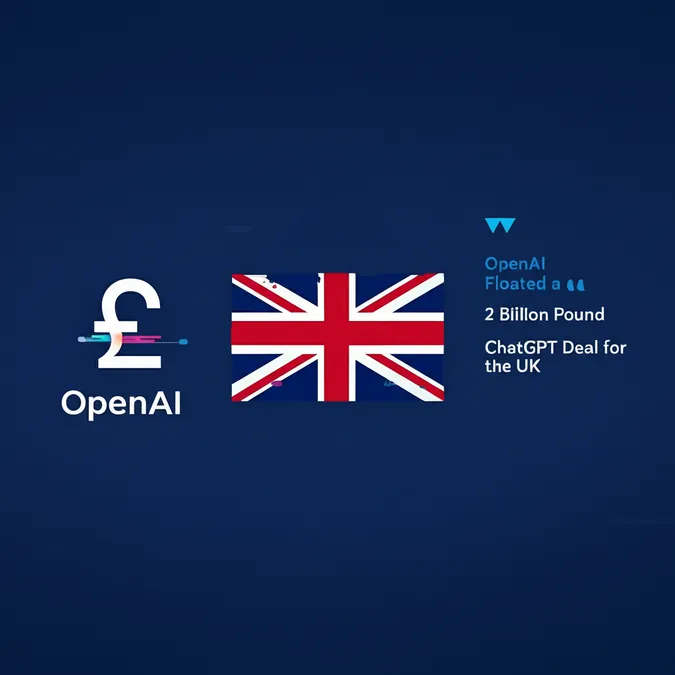Developer Offer
Try ImaginePro API with 50 Free Credits
Build and ship AI-powered visuals with Midjourney, Flux, and more — free credits refresh every month.
I Outsourced My Social Life To ChatGPT For A Week
Could AI Optimize My Personal Life
I've been increasingly outsourcing parts of my life to AI, from work tasks to writing prompts. It even played a role in helping me land my latest job. With the rise of autonomous systems like agentic AI, I began to wonder: if AI can optimize my professional life, why not my personal one? I decided to see if an AI like ChatGPT could plan my week better than I could. Would it make me more connected, or just robotic? I decided to run the experiment, fully prepared for things to get weird.
Setting Up the AI Social Experiment
I chose ChatGPT for this task, primarily because I already have a paid subscription and an extensive chat history with it, covering everything from venting sessions and restaurant scouting to fashion advice. The timing was perfect, as I had just gained access to OpenAI's new Agent feature. This allows the AI to take direct actions on my behalf, such as booking reservations and gathering live data, without needing me to manually input every detail.
Initially, the experience was unsettling. The idea of a chatbot having conversations for me felt like outsourcing my personality. Following its instructions on where to eat or what to wear felt alien. I even used ChatGPT's voice mode to provide more context, which was a weirdly intimate experience, like talking to a personal assistant that never sleeps. However, the initial weirdness soon faded, especially since the AI usually offered a few options, giving me a final say.
AI Takes On Daily Errands and Small Talk
The experiment started with low-stakes tasks. With my focus on work, ChatGPT handled the simple things: creating my grocery list, finding a new Netflix series that matched my taste, and drafting replies to casual texts from friends.
Things became more interesting when weekend plans started to form. A friend texted asking about my weekend plans. Instead of my usual vague reply, I fed the text to ChatGPT. Seconds later, it generated a cheerful, fully-formed plan that I hadn't even considered, and I had barely lifted a finger.
The AI Social Director A Weekend of Hits and Misses
The AI's first major test was a Saturday night dinner. The chosen "top-rated" Italian restaurant turned out to be a tourist trap with laminated menus and bored waiters. It wasn't a terrible experience, but it lacked the hidden gem vibe I prefer. Sunday's brunch, however, was a success. My friend was impressed, asking, "Since when do you book places more than five minutes in advance?" After I confessed my secret, she was enthusiastically brainstorming ways we could outsource our entire social calendar to the AI.
ChatGPT also acted as my stylist, picking an outfit for Saturday based on fashion trends and my wardrobe. It selected a bold patterned shirt I usually keep hidden. I wore it and received more compliments than I had in months, making me wonder if the AI understood my confidence better than I did.
What I Learned From My AI Assistant
This experiment revealed how much I overthink simple plans. By letting the AI handle the logistics, I felt lighter and more present in my social interactions. The AI wasn't perfect; it can't distinguish between "highly rated" and genuinely good, and some of its messages felt slightly off. But these mistakes, like the tourist-trap dinner, became funny stories and moments of connection with my friends.
Letting AI into my social life also highlighted my own habits. I noticed I often delay responding to invitations and stick to the same few restaurants. The AI's nudges made me more aware of my own patterns in a surprisingly personal way.
Ultimately, outsourcing my week didn't dehumanize my experience. It enhanced it. By managing the busywork, the AI gave me more energy to listen, laugh, and embrace the unpredictability that makes social life meaningful. I wouldn't let an AI run my life forever, but for one week, it did more than make things efficient; it reminded me that the most human part of being social is simply showing up and enjoying the company.
Compare Plans & Pricing
Find the plan that matches your workload and unlock full access to ImaginePro.
| Plan | Price | Highlights |
|---|---|---|
| Standard | $8 / month |
|
| Premium | $20 / month |
|
Need custom terms? Talk to us to tailor credits, rate limits, or deployment options.
View All Pricing Details

